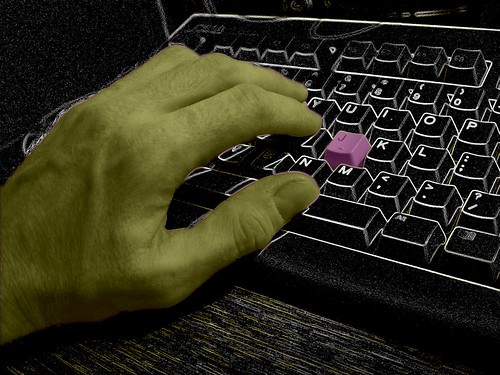Whenever people learn about my blog they ask me, 'why?' It is a fair question. I got interested in self-directed behaviour whilst studying psychology courses at Helsinki University. It started out as an interest in attachment theory (e.g John Bowly, Mary Ainsworth) and then extended into evolutionary psychology (e.g.Cosmides and Tooby). Afterwards I became interested in ethology (studying animal behaviour - particularly primates) and what studying animals could reveal about human interactions. From that I developed an interest in how animals respond to captivity and from there the parallels with human self-directed behaviours became evident.
My PhD studies are on hold right now, so this blog is partly a means to preserving my interest and also a public record of my work.
Writing about this stuff is very satisfying. It is a minority interest of course, and not one that will ever appeal to most internet surfers but that is part of why I like it.
There is a political aspect to this blog too. As humans we are constantly having to adjust to rapid changes in the social world around us. But humans are not limitlessly plastic (flexible) and nor are we blank slates who can put up with anything and everything - as animals raised in barren conditions of captivity frequently reveal. Unfortunately, politicians and corporations often overlook this fact as they seek to promote their interests over the social well-being of others and ignorant of knowledge of human history and evolution base decisions upon ideologies serving short-term profits. Where humans are embedded in environments that do not properly respect those conditions characterising our evolutionary history problems will emerge. And by this I mean self-directed behaviours.
Humans need to feel rooted in their environments; they need social support; they need to feel they have control over their lives to the extent that they can remain cognitively flexible and avoid psychological inertia. They have a strong sense of what is just, moral and fair and react strongly when these principles are not respected. They can accept inequality just as long as they have the same opportunity as another person to make something of themselves so that any status difference is the product of hard work rather than social privilege or cheating. Ultimately, we are creatures of light, I believe, rather than ones of darkness for who would choose the latter over the former if given a free choice. In the absence of choices people find alternative ways of coping - sometimes body-directed ones - as a way of regaining control over their hostile environments. Ultimately, we and our environments are one and anything that seeks to place human beings in glass jars or social vacuums will create destructiveness that is aimed inwards (body-directed) or outwards (hurt to others).
So, this site may only be of minority interest but the studying self-directed behaviours touches on universal concerns: how to live and stay mentally healthy in a social environment that can be frustrating and seemingly opposed to human needs. In writing this blog I get to connect to those concerns that make me (and you) a human being and in this respect it is a worthwhile exercise.

No comments:
Post a Comment
Please leave your comment below: